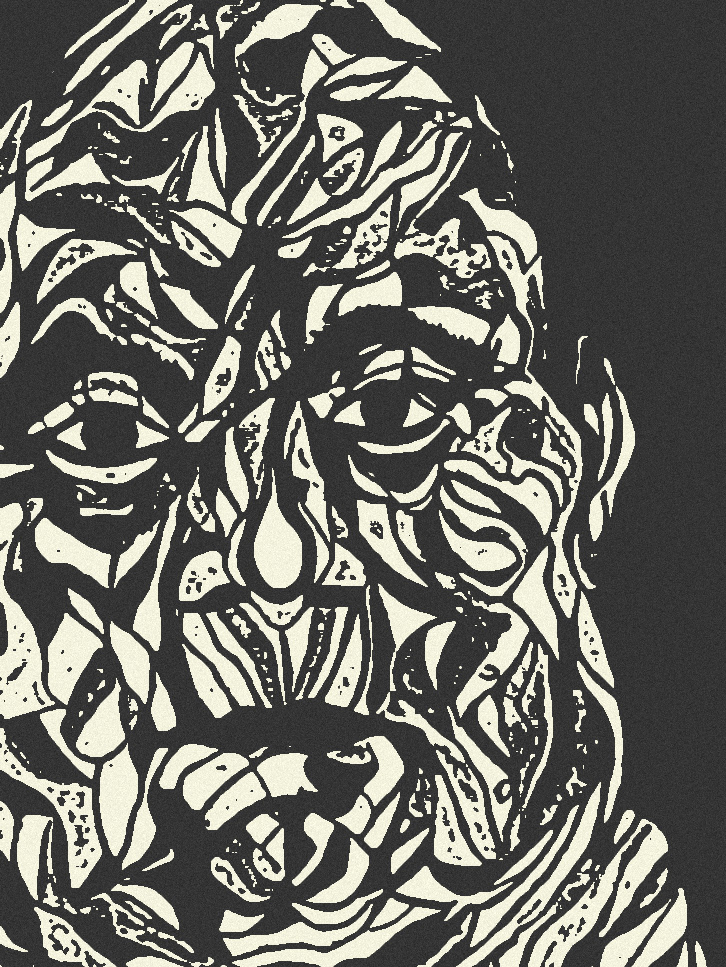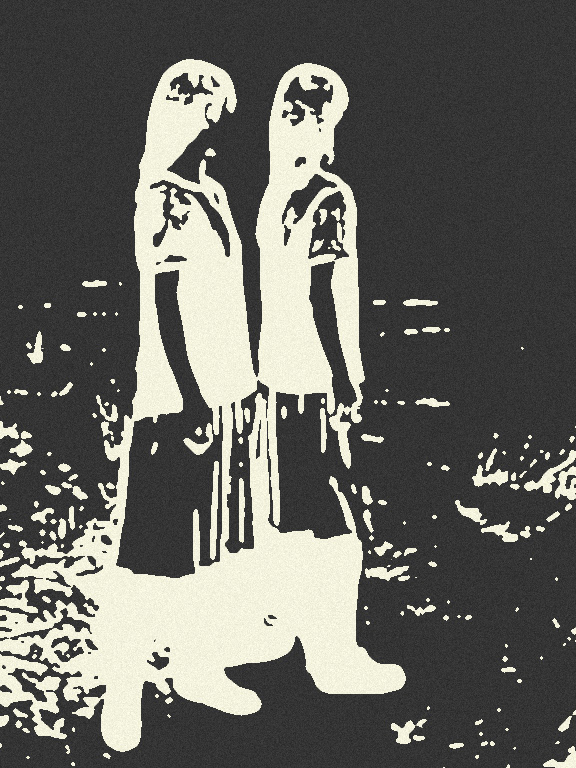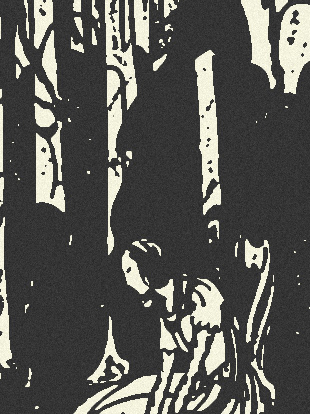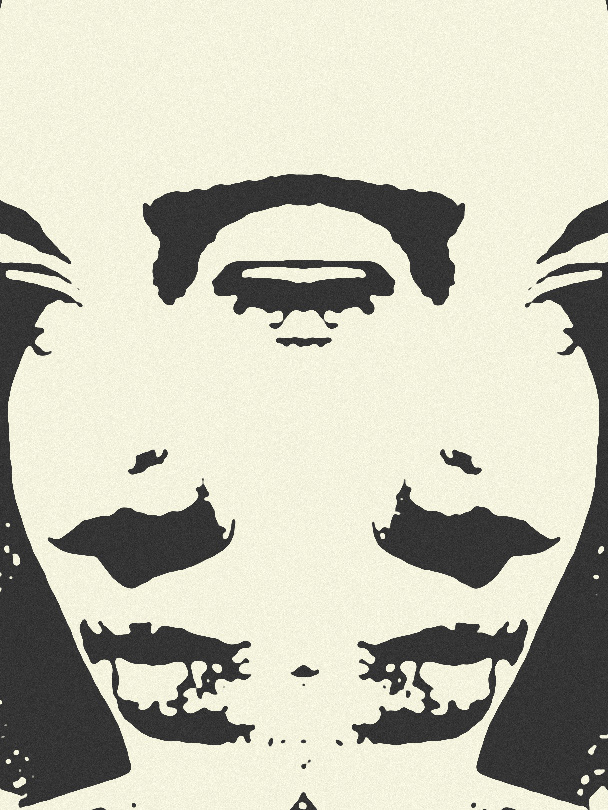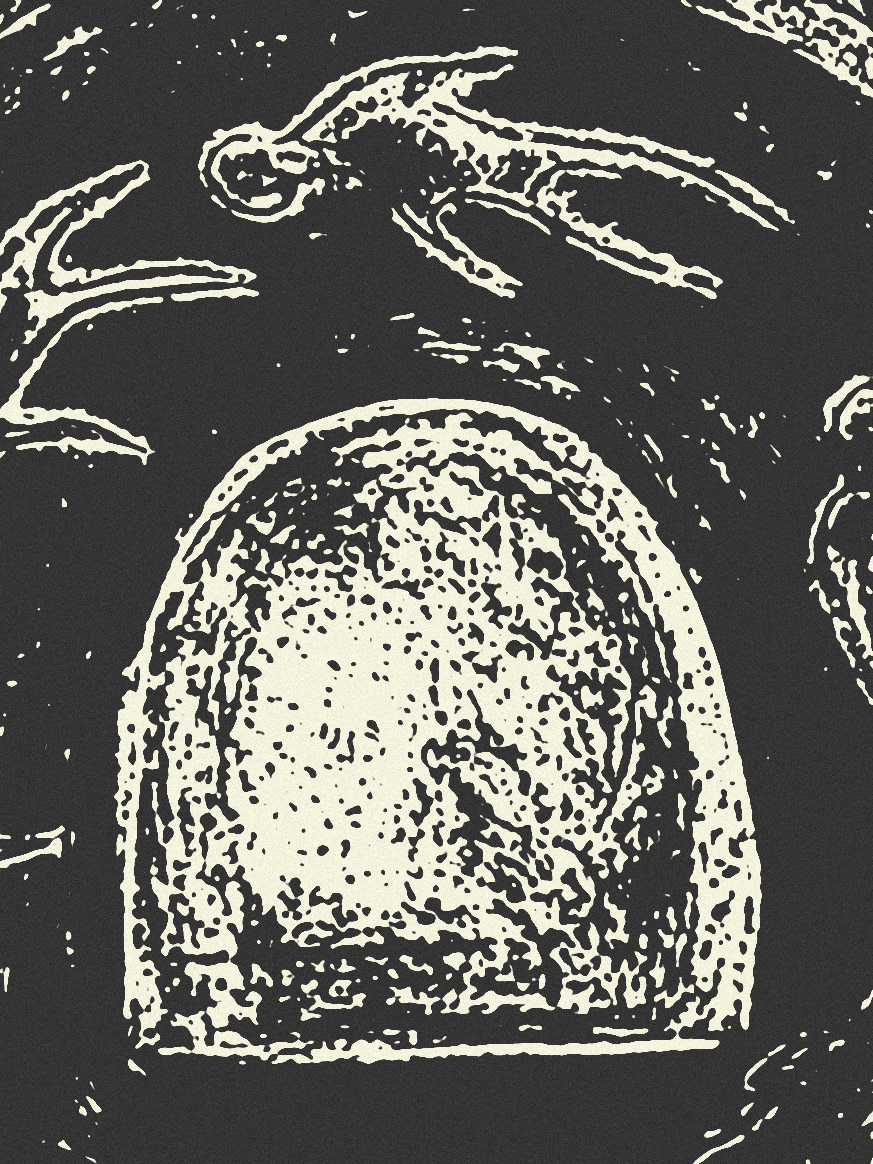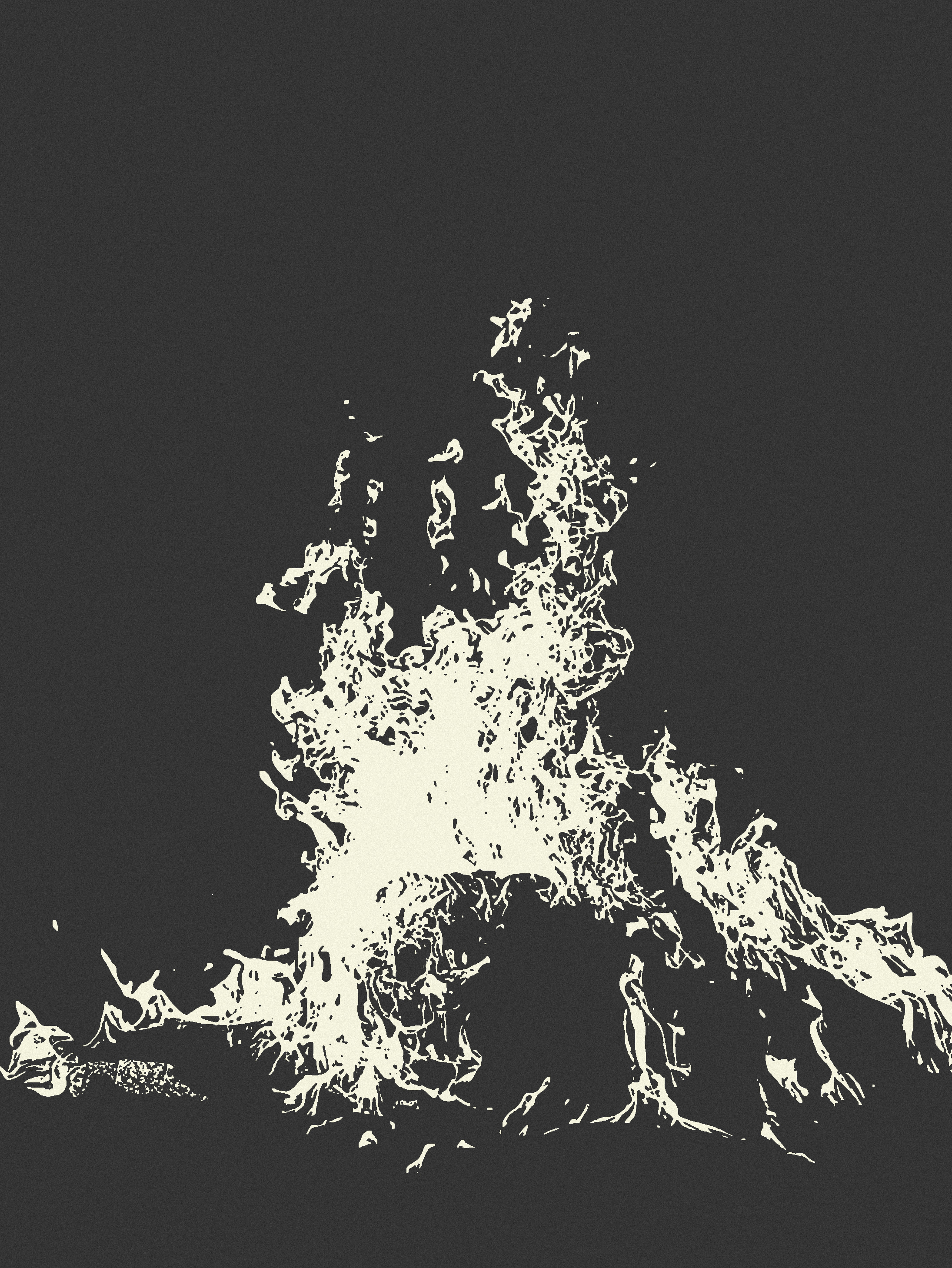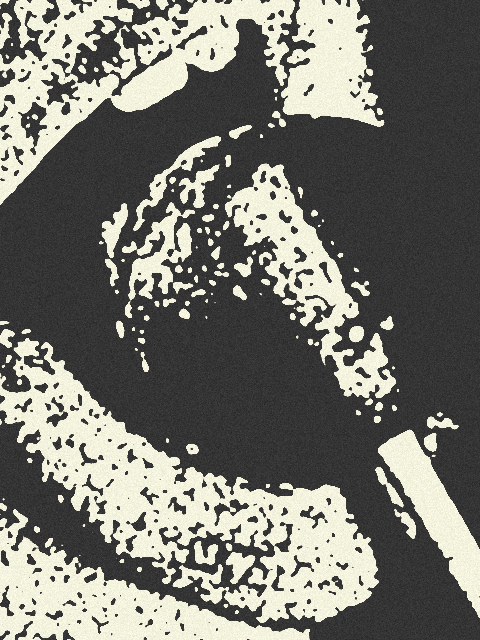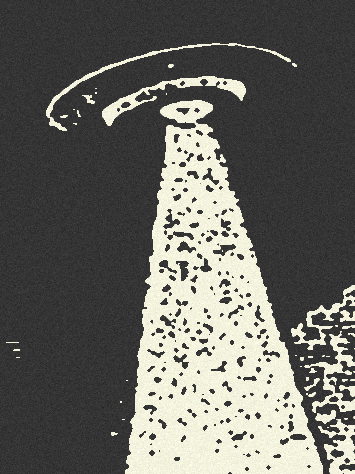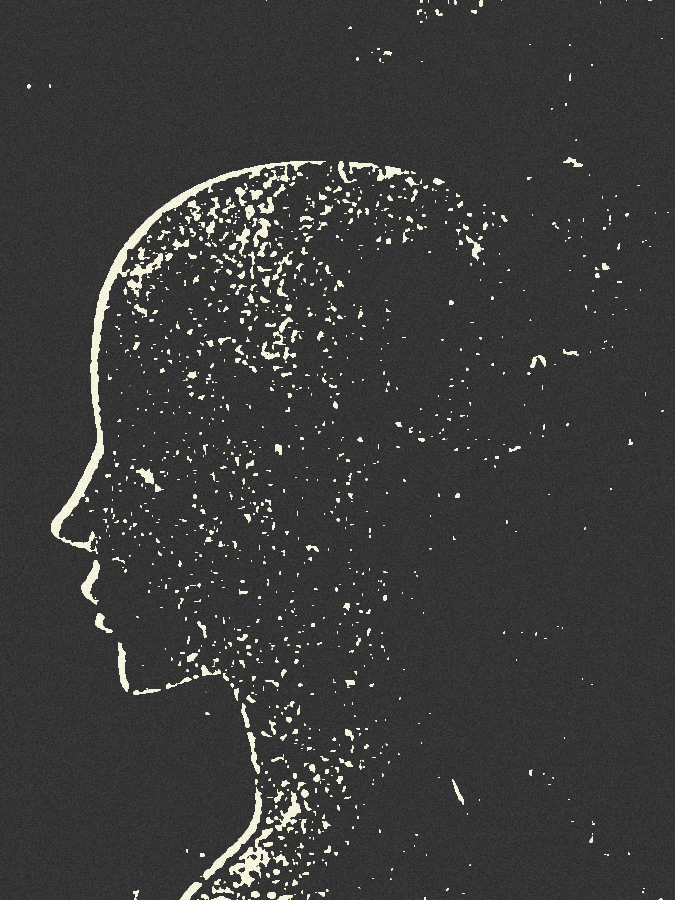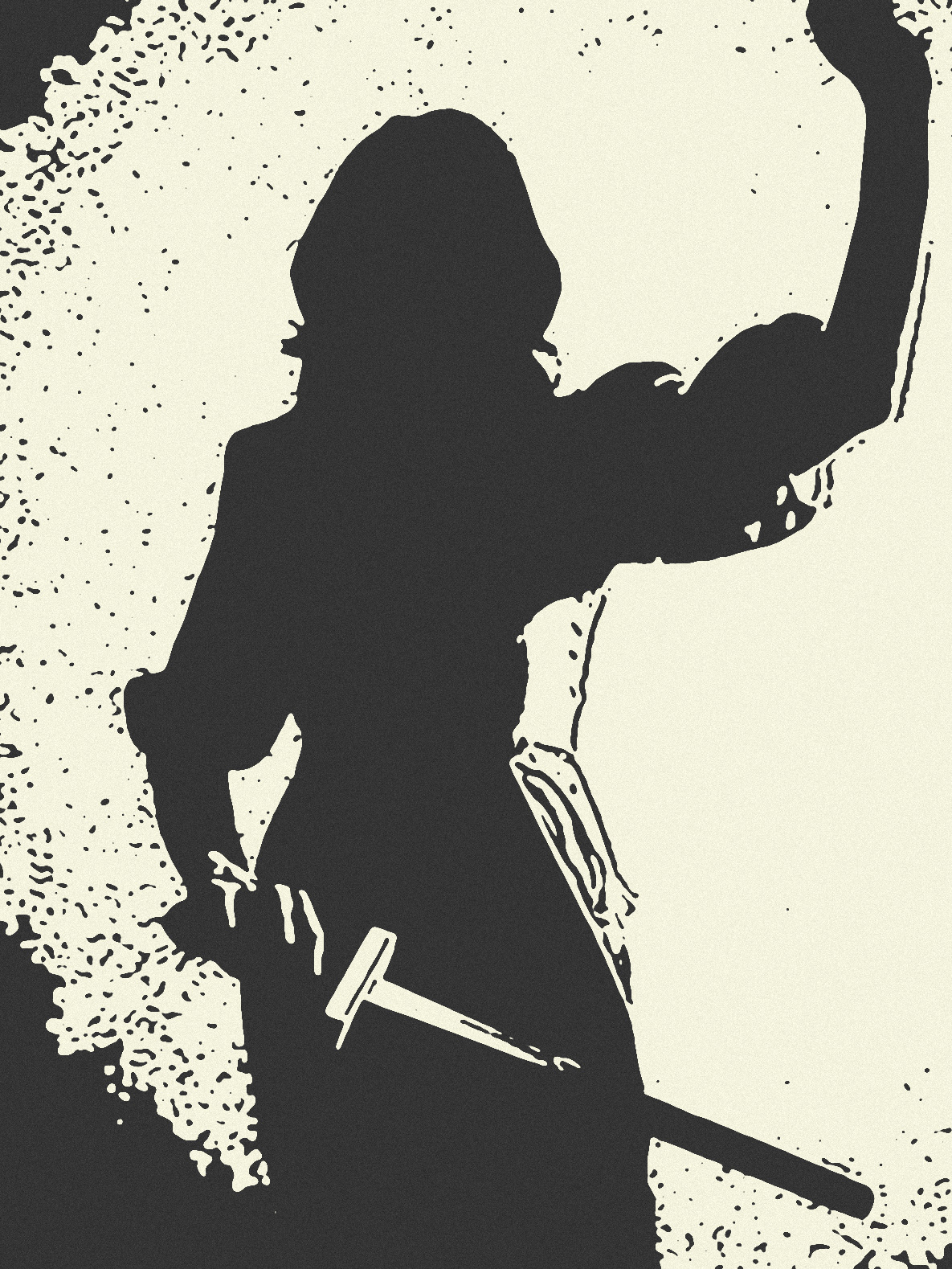✷
People used to ask me, “Roma, how do you know that your body is not well?”
I would say, “Trust me, I just know.”
They did not appreciate the extraordinary bond I once had for my old form, and they saw that as soon as I got up in the morning, I’d have no choice but to vigorously shake my hips to get the insects off. Which was one of the reasons why I needed a new identity.
In addition, because I was a shapeshifter who had a free checkup every six months at the Identity Clinic, it was a good plan for anticipating any trouble before it became serious. But there came the day, in between the regular checkups, when I looked in the mirror and said to myself, “Girl, it’s time to get yourself something new. You deserve it.”
I remember the procedure as if it were yesterday, and coming to in the recovery ward. My first thought was, It’s over, thank God. But I was not expecting to be able to know immediately whether the transfer had worked, for I knew my body would be bandaged for days. Half-conscious, I heard one floor nurse remark how I looked like a mummy.
My friend was coming in to see me that evening. I remember making a great effort not to be doped and, through tiny slits and blurry eyes, appear reasonably sensible and alert for him. When I finally recognized his footsteps, I felt relieved. He sat by my bedside and asked, “When will they take the bandages off? When will you know?”
I said, “Monday, Doug,” and we all knew what a long weekend lay ahead.
“Well, I hope they gave you something you’ll like for years to come. Something you can switch out of.”
“Even if they didn’t,” I said, “I can always come back and have them give me something I’ll like.”
“Yeah, but this isn’t plastic surgery, you know.” He cleared his throat. “Well,” he added in a very loving way, “as long as you’re happy. That’s what counts. If the character has flaws and still hasn’t worked for you, it won’t matter as far as I’m concerned. Your uniqueness has never made any difference to this old chap. You’ve always been Little Roma in my eyes.” He stood up. “Now, you’ll call me, won’t you, just as soon as you know?”
“Of course I will.” If my head didn’t hurt so much, I would have nodded.
Doug wanted so much to be there when the bandages were taken off, but couldn’t, because he worked on a sheep farm three towns away. From the time he left on Saturday night, there began endless hours of waiting. Time seemed stretched on the rack, and I with it. Every hour I tried to tilt my head and face the wall clock. I could hear it ticking away, but never fast enough.
When at last Monday morning arrived and the head nurse came into the ward and called me, I just lay there paralyzed, shaking, aware of my heart thumping.
“Come on, Roma,” I heard her keep repeating in her cheerful voice, “we’re ready. Everybody’s ready.” I felt stiff, and it was very hard to move from the bed. Still, I was thinking, this is what I’ve been waiting for. This should be the beginning of the great moment. Or perhaps it won’t be after all.
I was terrified.
I got to my feet, arms straight at my sides, and was led into the transfer treatment room. Open hands guided me to a chair that felt leathery and had a headrest. It reminded me of one of those torture devices from an earlier century, only metallic and modernized. I gripped its arms as if my life depended on it. The doctor came in and put down his clipboard. “And how is my number one patient feeling today?” he asked.
“Nervous,” I said. “Can’t really move much.”
“Oh, I wouldn’t worry about that. Movement, coordination, dexterity and the like, won’t really bother you much after today. You probably won’t even need it. What you’re feeling now is just the special drugs we use here.” He faced the head nurse. “Joan, tell my lizard patient that I might be a little late. Also, the Bigfoot creature on the third floor can be discharged.”
“Yes, doctor.”
“Now, where was I? Ah yes, coordination. You know, every year I get over a thousand shapeshifters and other creatures from all walks of life coming into my clinic. The world that exists outside these doors is relentless. Society truly is an unfathomable beast. I sometimes think there are more bullies than critics. And yet thousands more of your kind visit my office for simple consults or can get away with plastic surgery rather than whole identity removals or genetic shifts. Why is that?”
I tried to shrug my shoulders. “I don’t know. Why?”
“Because you’re all afraid. Afraid of what they out there will think of you. So once you’ve gone through the trials and tribulations of one body, once you can no longer hide what you truly are on the inside as well as the outside, you come to specialists like me looking for permanent change. For a shapeshifter, change is what it’s all about, isn’t it?”
Moments later he brought down three mirrors hanging from the ceiling. One to the left of my face, one to the right, and one in front of it. “Sit very, very still,” he said, and I could feel the bandages being unwound. Halfway there, he stopped and said, “Oh…”
I opened one eye and looked up at him. “What? What is it?”
“Oh, nothing.” He continued unraveling, as uncomfortable as it must have seemed for him, and suddenly I wanted to shout, don’t. Please, don’t do it.
Then the bandages were off, and still I did not know the result, because I had kept my eyes shut tight. He summoned the head nurse back, and I could hear her cloddy shoes pacing back and forth beside me. Just as before, she encouraged me, saying, “Come on, Roma, have a look at yourself. Then we’ll unravel the rest of your body.” I gripped the armrests even harder and opened my eyes. I forced myself to look in the frontal mirror, and was amazed by what I saw from all three angles. After that, it suddenly hit me. I was physically struck by brilliance, like an immense electrical shock to the brain. This utterly unimaginable, incandescent brightness flooded my being like a shockwave. There was a white in front of me—I smiled; I could finally smile—a dazzling white that I could hardly bear to take in, and a vivid blue and fairness of flesh that I had never dreamed possible. It was fantastic, marvelous, incredible; words could not describe it.
The doctor seemed worried. I heard him whisper to the nurse, “Joan, did you check the equipment last week? Was everything reset like it was supposed to?”
“Of course,” she said. “We always retune when a patient is about to undergo a transfer.”
He took her by the arm and pulled her aside. “What about the medication? Did you administer the right dosage?”
“Always. I’d never change the formula,” she insisted.
“Then how did she get to adopt that identity?” Suddenly he pointed at me.
But I didn’t care. I saw a new and absolutely wonderful me in those mirrors. I turned and looked the other way, and there were colors, lots and lots of vibrant colors, and at the same time there flooded in new sounds, the sounds of voices saying, “Can you walk, can you float, can you crawl?” I was just so overwhelmed and spellbound by this new form—as if the sun itself had burst inside my brain and body and scattered every molten particle of its light—that it took me some time to say anything. I looked back at my eyes and said, “Oh, God, they’re blue; such a pretty blue.” I felt the texture of my skin and said, “So smooth and soft; it’s so beautiful.” Lastly, I looked down and saw a pair of pendulous parodies. “Breasts… I have breasts!”
“Do you know who I am?” asked the head nurse, walking toward me. Vision no longer blurry, I recognized her uniform, and the voice I became accustomed to the past few days was no longer high-pitched.
I was still not a hundred percent coherent, but without the bandages I could at least make my way across the room. When the last pieces were removed from my body, and I had completely recovered from the renewed shock of brilliance, I decided to look at my bathrobe. As I was looking down, I happened to catch sight of my hands and had a tremendous jolt. I thought they looked awful, the veins, and the knuckles. The bone structure was odd; they stuck out.
I said to the nurse, “Joan, aren’t my hands terrible?”
She came over, looked at them quite closely, and said, “Oh, don’t be ridiculous. They’re perfectly normal.” She paused. “Well, whatever you consider normal.” She paused again. “So your hands are not like everybody else’s. Look at mine. They’re furry.”
So I looked at her hands, and saw the hairs standing up, and said, “Gosh, aren’t they horrible things?” I always pictured them as looking smooth and nice. I was really quite disillusioned in the perception department, and I remember going around for a day or so tucking my hands out of sight in my sleeves.
Still, I said, “Doctor, it’s wonderful. I love it!”
“I’m glad you like it,” he said, somewhat surprised. “To be honest, we weren’t banking on this shape for you. I’m surprised you came out like this. It’s so rare an identity I can’t even tell if you’re in one piece or not. I’ll have to check the medical books, of course. For the moment, I would advise you not to leave the building. If the public were to catch sight of what you’ve become, they might get the wrong impression, and… Well, who knows what could happen.”
“Then they are the ones who are suffering an identity crisis,” I laughed.
The head nurse agreed. “Maybe, but the doctor’s right, child. I’d stay here a little while longer. At least until you recuperate.”
The other tests took all but a few minutes. Everything crowded in. Not only did I look different, but my senses—sight, sound, smell, hearing and touch—were perfected to a level that even the doctor himself could not encompass. Then, just as quickly, my sensory perceptions and altered state began to fade and merge into one another, and I thought, NO! Oh, no, the transition, it’s failing. That’s all there’s going to be, I can’t bear it. I was struck by a sudden terror and instinctively put my hands up to my head. Tears were streaming down my face, and I suddenly felt weak. But my form was still solid. Nothing had changed. Oh, thank goodness, it’s not shifting, it’s just a side effect of the transfer. And I wept uncontrollably and could not stop, because of the joy and the shock that I still could not fully take in. At the same time, the floor nurses and clinic staff gathered around me and were shaking my hand. I realized that they, too, were crying and could not say anything for tears.
“You may experience these reactions for quite some time,” the doctor explained to me. “As I said, this is a very rare identity. We usually don’t recommend these kinds of bodies, because they’re unhealthy and often make you more of an outsider. You may age from it; you might even eventually die because of it. But if you like it that much…”
“I do,” I said, beaming. “I really, really do!”
The doctor shook his head. “Then I wish you good luck.”
I phoned Doug right away, and even though I got his answering machine, all I kept saying was, “I’m finally different, and it feels great! Oh, Doug, this is so much more than skin-deep. I never knew that a world could exist where such colors and feelings and abilities were just so spectacular to own,” and then I called my parents and my sister and practically everyone else I could think of.
It was not until mid-afternoon that I heard from Doug. He told me that when he did finally pick up the phone and the message came through, he hopped on the couch and sat still, unable to grasp the sheer wonder of what I’d been saying. According to him, he’d actually sat there for a whole minute, bracing himself for the news, good or bad. He wondered now whether he, too, should perhaps consider signing up as a patient for the Identity Clinic.
When he came to see me that evening, we did not speak much at first. As shapeshifters, Doug and I were so close, that it was some time before we needed to put into words all the possibilities. This also included our friendship. Like the doctor, he too was worried. “It’s a rough world out there, Roma. You’re not one of us anymore. When you said over the phone that you were different, I didn’t think—”
“Didn’t think that I’d end up this pretty? What? How am I different mentally from you or any other shapeshifter? And what happed to that uniqueness you once talked about so much?
“Roma, we… or at least you used to live in a black-and-white world filled with many bizarre creatures. That was the norm, and it still is. Now, to those creatures, you will seem like this ugly thing. You won’t fit in. My feelings for you will never change, but society will judge you differently. You know this.”
“Then let them!”
“But it’ll be dangerous.”
“I can take care of myself, thank you very much. If you won’t help me, Doug, then I’ll find a family member or other friends who will.”
There was a moment of silence between us.
Eventually all sentences started with, “When you come home…” And each time there was something new he wanted to show me. According to him, we would go on vacation. Life began to unfold in front of me, and now it stretched on and out, full of hope. There were more positive emotions expressed rather than negative ones, and I wondered if this too was a chemical side effect of the transfer.
The senior staff doctor came in to see me. I was being released soon, and he was not able to be with his colleague when the bandages were taken off, as he had been working on another patient at the time. I kept thinking of his words, “This place doesn’t always work miracles.” But, to me, his clinic had. I heard his familiar footsteps approaching along the ward, and I sat up. When he said, “Hello, Roma, how are we feeling today?” Doug stepped out of the room and all my words suddenly tumbled out in a great surge of emotion.
“It worked. You gave me exactly what I wanted.”
His only comment was, “Yes, isn’t it marvelous?” He raised a clawed hand and patted me awkwardly on the shoulder. Then he sat down with his little flashlight and examined me. “Being the only one of your kind can be marvelous indeed.”
He said that if I felt up to it, I could go home the following day. I felt as a prisoner must when pardoned at last for a crime he never committed. One of the last things he said before discharging me was, “You know, your transfer made newspaper headlines. There are all manners of creatures standing in line to enroll with our clinic. They don’t want to be themselves anymore. They want what you have. They want to be just like you.”
Who could blame them?
Doug was due to pick me up that Wednesday around noon. All week he had been joking about having his fur dyed, saying, “It’s all right for you, Miss Fixed. I knew what you looked like to start with. But you’ve never seen my transformations. You could be in for a shock.”
I said, “Whatever you look like, it won’t make any difference.”
“Yeah, but at least you get to stay that way from now on. It’s almost like you’ve been cured.”
“Jealous, are we?”
He shook his head. “Somebody should put a muzzle on that mouth of yours.”
When we arrived home, Doug leaped over the fence and got in front of me, tail wagging. I walked into the living room, my living room. It was much more charming than I had pictured it. I suddenly thought that Doug had had a fancy red carpet put down especially for me—I had been so used to seeing things in black-and-white—but when I knelt down and touched it, I realized it was the same smelly, torn-up carpet from before I left. Then he said, “What do you think of the dining room?” This was lovely, all the decorations he had carefully laid, fawn and pink with vases and appliances throwing shadows where it jutted out.
One of the things I wanted to do when I was alone was to look into a mirror again. I had not yet seen the new me at home. Summoning my courage, I confronted myself in the bathroom mirror. I saw, unnervingly, a mime, whose lips moved when I moved mine, and whose eyes blinked when mine did.
I looked around the house again. When I was a shapeshifter I had never thought very much about the pictures on the wall. Now, there was one picture, a poker table with dogs playing cards around it, that I could make no sense of whatsoever, for I could not relate the visual image to any previous reality built upon perception.
✷
"Identity Crisis" first appeared in Aoife’s Kiss Magazine, September 2009.
Lawrence Dagstine is a native New Yorker, video game enthusiast, toy collector, and speculative fiction writer of 25+ years. He has placed close to 500 short stories in online and print periodicals during that two-decade plus span, especially the small presses. He has been published by publishing houses such as Damnation Books, Steampunk Tales, Left Hand Publishers, Wicked Shadow Press, and Dark Owl Publishing (of which he has a new book out called "The Nightmare Cycle"). He is also the author of two past story collections, from the 2000s era, entitled "Death of the Common Writer" and "Fresh Blood". Visit his website at: www.lawrencedagstine.com or on Twitter, where he tweets about art and literature, video games, pop culture, and other fun stuff: www.twitter.com/ldagstine

